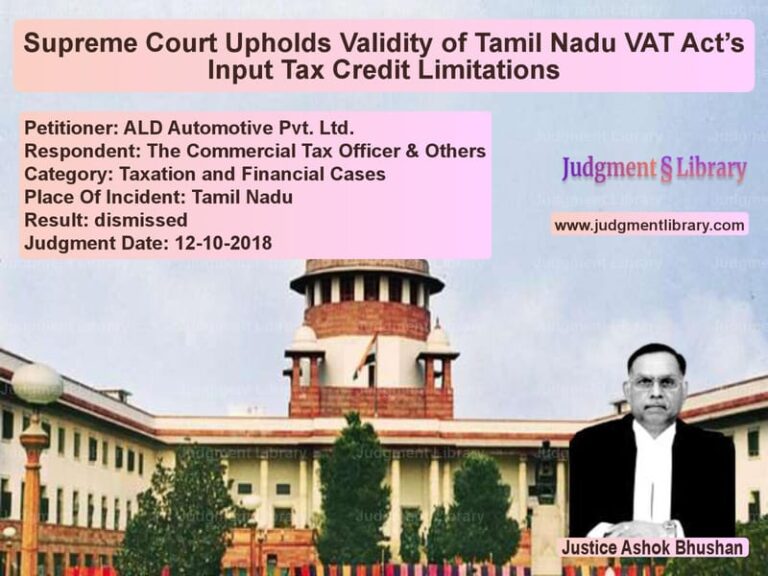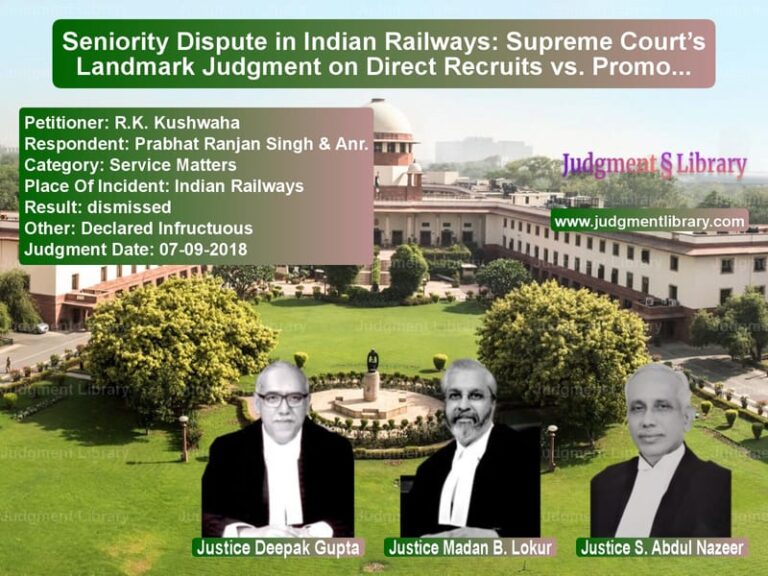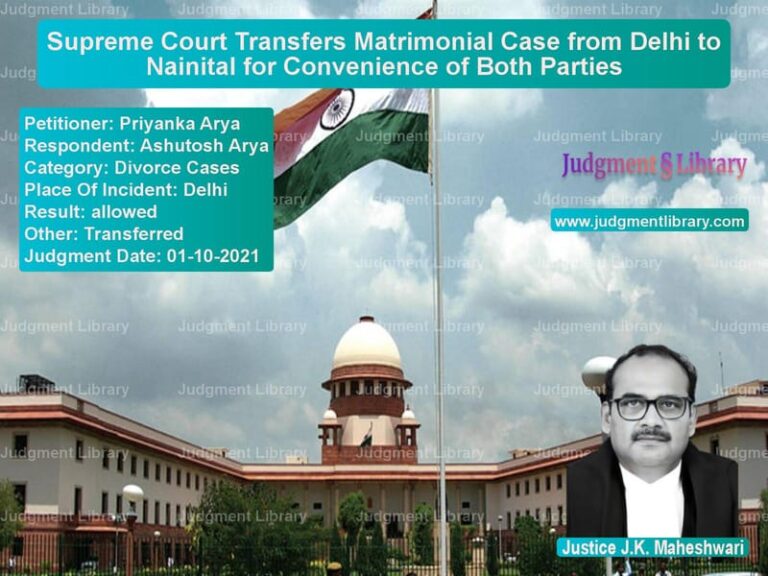Supreme Court Resolves Land Auction Dispute in Dev Narayan Mandal v. State of U.P.
The Supreme Court of India recently delivered a significant ruling in the case of Dev Narayan Mandal v. State of U.P., involving a dispute over the allotment and auctioning of two plots. The judgment provided clarity on land auction procedures and ensured fair treatment for all participants in government auctions.
Background of the Case
The case arose when the appellant, Dev Narayan Mandal, was allotted two plots in Uttar Pradesh. However, the allotment was later canceled by the authorities, who alleged that the appellant had failed to meet certain diligence requirements. As a result, the state initiated fresh auction proceedings.
Dev Narayan Mandal challenged this cancellation, arguing that he had followed all necessary procedures and that his allotment should be restored.
High Court Proceedings
The appellant initially approached the High Court, which upheld the cancellation of the allotment and permitted the state to proceed with fresh auctions. Dissatisfied with the decision, Dev Narayan Mandal appealed to the Supreme Court.
Supreme Court’s Interim Order
On July 18, 2016, the Supreme Court directed the authorities to proceed with the auction but allowed Dev Narayan Mandal to participate as a bidder.
Arguments by the Parties
Arguments by the Appellant (Dev Narayan Mandal)
- The cancellation of the allotment was unfair and arbitrary.
- He had complied with all necessary requirements and should be allowed to retain the plots.
- He was willing to participate in the new auction to demonstrate his commitment.
Arguments by the Respondents (State of U.P. & Authorities)
- The appellant had not been diligent in fulfilling the requirements of the allotment.
- The cancellation was legally justified.
- A fresh auction was necessary to ensure fairness in the land allocation process.
Supreme Court’s Observations
1. Fairness in Auction Procedures
The Court observed that permitting the appellant to participate in the fresh auction was the best way to balance the interests of all parties.
2. Status of the Auction
The Supreme Court reviewed an affidavit submitted by the state authorities, which confirmed that Dev Narayan Mandal had submitted the highest bid for both plots. The Court stated:
“It is submitted that the appellant herein was the highest bidder for both plots and that the respondents have no objection, in principle, in granting the bid in favor of the appellant, being the highest bidder.”
3. Directions for Finalizing the Auction
The Court directed the authorities to finalize the auction proceedings within 15 days, ensuring that the process was completed without further delay.
4. Deposit Requirements and Penalties
The appellant was ordered to make the required deposit for each plot, with the amount carrying an interest of 9% per annum from the date of deposit. The Court made it clear:
“In the event of default on the part of the appellant in depositing the earnest money, or in making the balance payment as per schedule, the bid shall stand canceled, and the authorities will be at liberty to go for fresh auction.”
Additionally, if the appellant failed to make payments on time, the deposited amount would be forfeited.
Supreme Court’s Final Decision
- The appeal was disposed of with specific directions for finalizing the auction process.
- The state was instructed to complete the proceedings within 15 days.
- The appellant had to deposit the required amount, failing which the bid would be canceled.
- The deposit amount would carry an interest rate of 9% per annum.
- In case of default, the authorities were permitted to re-auction the plots.
Implications of the Judgment
1. Clarity in Land Auction Procedures
The Supreme Court reinforced the principle that land auctions must be conducted in a transparent and fair manner.
2. Protection Against Arbitrary Cancellations
The ruling provided relief to bidders who face arbitrary cancellations by allowing them a fair chance to participate in auctions.
3. Strict Compliance with Payment Obligations
The judgment emphasized that winning bidders must meet payment deadlines to retain their allotments, ensuring discipline in auction procedures.
Conclusion
The Supreme Court’s ruling in Dev Narayan Mandal v. State of U.P. underscores the importance of fairness in government auctions. By allowing the appellant to participate in the bidding process and ensuring transparency, the Court upheld the principles of natural justice.
The ruling also ensures that land allocation remains an efficient and accountable process, benefiting both bidders and authorities. This judgment sets an important precedent for future disputes related to government auctions and property allotments.
Don’t miss out on the full details! Download the complete judgment in PDF format below and gain valuable insights instantly!
Download Judgment: Dev Narayan Mandal vs State of U.P. & Ors. Supreme Court of India Judgment Dated 25-07-2016-1741873448982.pdf
Direct Downlaod Judgment: Direct downlaod this Judgment
See all petitions in Property Disputes
See all petitions in Damages and Compensation
See all petitions in Judgment by Kurian Joseph
See all petitions in Judgment by Rohinton Fali Nariman
See all petitions in allowed
See all petitions in settled
See all petitions in supreme court of India judgments July 2016
See all petitions in 2016 judgments
See all posts in Civil Cases Category
See all allowed petitions in Civil Cases Category
See all Dismissed petitions in Civil Cases Category
See all partially allowed petitions in Civil Cases Category







